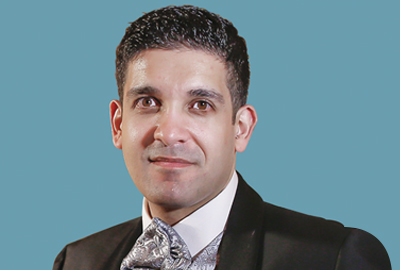The lawyer, a diplomat?

The art of being a good lawyer is being a good diplomat, writes the head of legal of Aggreko Middle East & North Africa.
To borrow Roy Jenkins’ phrase, diplomacy is analogous to being able to carry a priceless Ming vase across a crowded room. Diplomats are empowered, trusted and revered to be able to spot, navigate around, deflect and neutralise polarised opinions, cultural sensitives, historical conflicts all intermixed with strong personalities and political gamesmanship. Lawyers are entitled to feel that they too must do the same, albeit perhaps only the lucky few can afford the ambassadorial trappings of a grandiose residence, invitations to mingle with high society and the occasional summons to meet their host country’s Head of State.
However, diplomats and lawyers share a common objective; both must be able to influence and persuade. Those who can hone in and refine their social, business and strategic skills will find they can effectively advance their client’s objectives. The Monocle Guide on How to Make a Nation (Gestalten, Berlin 2016) devoted an entire chapter to the art of diplomacy citing essential skills such as the ability to make a good first impression, rapport, adaptability and courage. Despite today’s insta-gratification culture of consumerism and social media, traditional skills still rank high up on the list of traits that influencers must possess in order to get ahead.
As with diplomacy, linguistic skills and cultural awareness are essential for lawyers to build, refine and confidently execute. When it comes to making first impressions, cultural awareness and respect are emotional conduits that humans must traverse in order to be able to build bonds and friendships.
There is no excuse for failing to respect cultural standards whilst working in a host country. I cringe when I see other professionals, both lawyers and non-lawyers, breaking regional cultural taboos in business meetings and networking events. For several years, Jeremy Williams’ book ‘Don’t they Know its Friday’ (Motivate Publishing, Ajman, 2017 (3rd edition)) has sat proudly on my shelf and has been a steadfast reference guide on how to do business within the Gulf. I love the book’s chapters on behaviour and attitudes.
In light of the tacit and written cultural knowledge available to them, General Counsel must actively challenge lawyers in their team to refine how they do business, build diverse teams and recruit advisors to educate, guide and train newly inducted employees on how to interact with and speak to people from different backgrounds and cultures.
Within the workplace, lawyers, particularly those working in-house, must be able to deploy a repertoire of well-balanced, diplomatic skills to tenaciously meander around difficult clients, professional conflicts, competitive workplaces, adverse opponents and tough budgetary constraints. These skills are vocational and can be learned, developed and refined by watching, practising and executing. Additionally, classes operated by Toastmasters International can provide a supportive environment for lawyers to develop their negotiating, public speaking and leadership skills.
Diplomats and lawyer alike profess good character, honesty and integrity as traits which any good influencer must possess in order to persuade. Winston Churchill once said ‘Never trust a man with no vices’. Therefore, be human, practice collegiality and be honest about your flaws. Tact is a virtue which is inherently hard-coded within diplomatic ranks. However, unlike the legal world, appearing to let your guard down and exposing superfluous flaws can be a powerful mechanism to build reciprocity with your opponent and in turn, trust.
Being the diplomat can help lawyers to shed the Harvey Spector/Martha Costello stereotypes. Diplomacy enables lawyers to build bridges, solve problems, develop consensus and trust in our profession. As one Egyptian philosopher, Ptahhotep said in 2,500 BCE “…the strength of one is the tongue, and speech is mightier than all fighting”.
Columnist:
Khaled Shivji – head of legal – MENA & Military, Aggreko plc.
























































































































